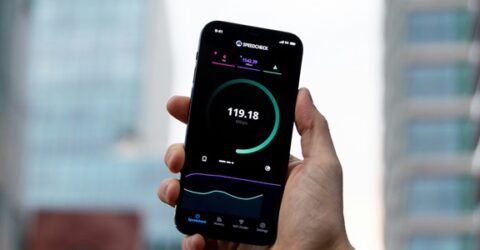WiFi 7 is coming: what benefits will it bring?
WiFi 7 is officially on the way, bringing new range and performance to WiFi routers across the UK

Over the last 25 years, WiFi has evolved from a high-tech feature sported by a few high-end desktop PCs into a domestic staple we take for granted until it stops working.
Yet for millions of UK households, the rate of progress halted in 2013 when WiFi 5 came out.
Many ISPs have chosen to overlook recent evolutions in WiFi technology, such as support for the 6GHz frequency band https://broadbanddeals.co.uk/news/coming-soon-to-a-router-near-you-the-evolution-of-6ghz-wifi/ or improved power management features introduced in WiFi 6.
The imminent arrival of a globally approved WiFi 7 standard might therefore seem like overkill to the millions of UK households with a WiFi 5 router.
Yet ISPs are enthusiastically upgrading the next generation of broadband routers to incorporate this newly approved technology, officially known as 802.11be.
It’s predicted that almost 250 million WiFi 7-enabled devices will enter the market this year alone, capitalising on some genuine upgrades over 6 – let alone older versions like 5.
So what benefits can we expect from this seventh generation of wireless communications? And when are suitably equipped broadband routers https://broadbanddeals.co.uk/guides/routers/ likely to be available?
Seventh heaven
Given the complexity of wireless data transmissions, it would be easy to sink into industry jargon.
Instead, we’ve tried to simplify the descriptions of how WiFi 7 will improve domestic internet connectivity…
A need for speed
It’s doubtful that any domestic user will be able to benefit from the theoretical peak data speeds of 40Gbps on offer in the upcoming generation of home broadband routers.
With most line speeds limited to 1Gbps, and streaming services rarely needing more than a few megabits per second, these devices won’t be tested to anywhere near their full potential in the immediate future.
Yet futureproofing broadband hardware is important given the rate of technological progress.
Noughties consumers couldn’t have conceived of gigabit broadband connections, yet these are now fitted as standard in new homes across the country.
The prospect of 8K video streaming and ongoing IoT growth is focusing the minds of ISPs as they commission new ranges of wireless routers.
It’s also worth noting that the realistic throughput speeds of even the most efficient WiFi router will probably be around 5Gbps once things which can block signals around the home are taken into account.
Although the 6GHz frequency is far less congested than the overloaded 2.4GHz band earlier generations of wireless routers depended on, the latter channel will still be used.
In terms of ISPs rolling out this new technology, EE (BT) and YouFibre ought to be distributing WiFi 7-equipped routers by the summer, with others expected to follow before Christmas.
These are likely to be offered selectively to new consumers on premium packages, rather than rolled out by default.
Households reliant on Fibre to the Cabinet connections will have no need for these power-hungry devices, which will also be costly until economies of scale bring down manufacturing costs.






